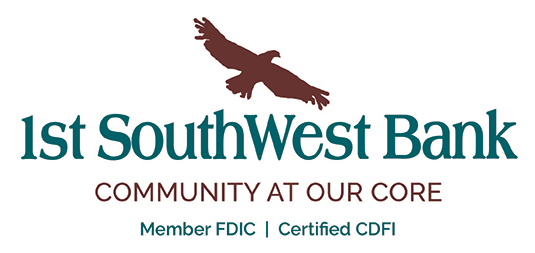At some point, you’ll need somewhere to stash all that hard-earned money from your part-time job. And even if you aren’t employed yet, chances are that you’ll receive a financial windfall from a family member or friend along the way.
Look no further than a financial institution.
Now, I know you may be wondering why you even need a bank. Why can’t you just stuff your hard-earned cash into an oversized pink piggy bank and slide it under your bed?
You could take that route, but a bank account may be a smarter choice. Here’s why:
The Benefits of Using a Bank.
Beyond serving as a safe place for your money, banks offer the following benefits:
-
Safety
If you have a few thousand — or even a few hundred — dollars to your name, you don’t want to carry it around everywhere you go.
But you may also have reservations about stashing it away in your home. Financial institutions offer a safe alternative place for you to put your money without fear of theft. Plus, you can access it from anywhere in the nation (and in most other countries) with your debit card or online bill payment and money transfer.
-
Insurance
Banks are backed by the Federal Deposit Insurance Corporation (FDIC), which insures all deposits per account for up to $250,000.
-
Wealth-Building Mechanism
You won’t generate a ton of wealth by having your funds sitting in a bank account, since the interest rates are still low. However, regularly stowing funds away will enable you to accumulate a large enough amount to start investing and building wealth. Keep in mind, financial institutions do offer some interest on your money in a checking account or high-yield savings account. Also, be mindful of account service fees. Many financial institutions offer no-fee accounts to students enrolled in high school, college, or trade schools.
-
Relationship Building
At some point, you may need to secure financing to purchase a car, or home, or even obtain your first credit card. If you’ve established a solid relationship with your bank over the years, the barriers will be much lower.
What Banks Offer
Most banks and credit unions offer a plethora of financial products, including:
- Checking accounts
- Savings accounts
- Money market accounts
- Certificates of Deposit
- Loans (home, auto, personal, business)
- Financial educational resources
How to Choose
Not all banks are created equal, so you want to proceed with caution when analyzing your options. Here are some items to consider:
- Product Offerings: What types of financial products do they offer?
- Insurance: Are deposits federally insured by the FDIC or NCUSIF?
- Fees: What types of fees are account holders assessed for? Keep in mind both account maintenance and transaction-related issues.
- Electronic Banking: Do they offer online banking?
- ATMs: Are ATMs available throughout the nation, or solely in select states? Is there a fee to make withdrawals?
- Direct Deposit Capabilities: Can account holders have their wages directly deposited on payday? Are electronic fund transfers permitted and is there a charge for them?
- Location: Is the bank online only or in a physical location as well?
- Customer Service: Are representatives available to address your questions or concerns during the hours that are most convenient for you? Does the institution offer exceptional customer service on-site? How are the wait times in the lobby?
- Other Resources: Are there financial literacy resources and programs available to assist you?
Your First Bank Account
To open your first bank account, you will need to be mindful of the following:
- Requirements: What criteria must you meet to qualify for a checking or savings account?
- Documentation: Find out what ID you will need to bring. If you are under eighteen, what role do your parents play in your opening an account?
- Initial Deposit: How much money will you need to open an account?
- Restrictions: Is there a minimum balance you must maintain to keep the account open or avoid monthly transaction fees?
- Perks: What are the primary benefits of having the account?
Fortunately, most financial institutions offer a low-cost (or free) student checking and savings account bundle to get you started!

